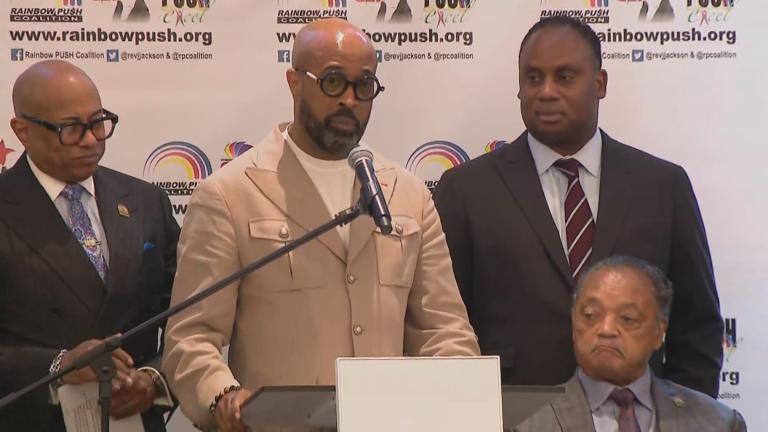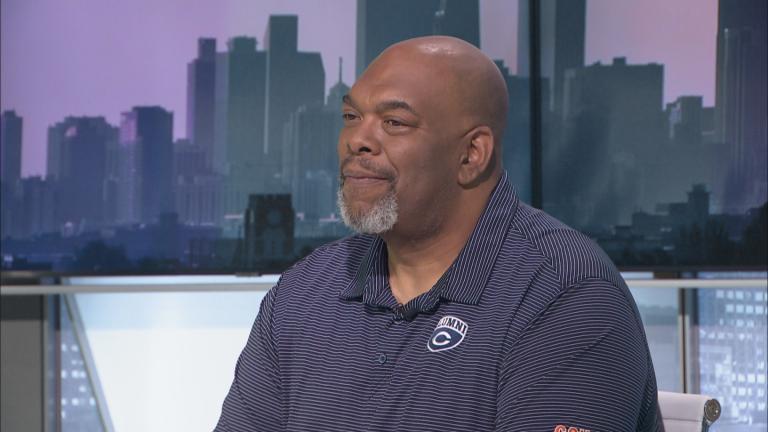The former chair of Illinois’ Prisoner Review Board, who resigned last week amid outrage over the killing of an 11-year-old boy by a felon released from Stateville Correctional Center just one day before, pushed back on Gov. J.B. Pritzker’s characterization of the board’s work on the case.
Donald Shelton, who served on the Prisoner Review Board since 2012 and who led the board since last year, took issue with a statement released by Pritzker concerning board member LeAnn Miller’s resignation.
Miller oversaw the hearing that determined Crosetti Brand be released from custody following allegations he violated the terms of his mandatory supervised release. Brand had been accused of making threats against former girlfriend Lateria Smith.
Prosecutors said one day later, Brand showed up at Smith’s home and attacked her with a knife. Jayden Perkins, Smith’s son, was stabbed to death as he attempted to defend his pregnant mother from Brand.
Pritzker said in a statement last Monday that in his view, “LeAnn Miller has made the correct decision in stepping down from her role,” adding that “it is clear that evidence in this case was not given the careful consideration that victims of domestic violence deserve.”
“I don’t agree,” said Shelton, in an exclusive interview with WTTW News. “It’s one thing to say that I think the judgment was in error. It’s another thing to say that there was a lack of concern for a victim of domestic violence.”
Shelton added that in his view it was wrong to criticize board members for a decision that was made in good faith.
“If the decisions are being made in good faith, then I don’t think she (Miller) is responsible for a murder that happened that she could not anticipate,” said Shelton.
Despite what Pritzker may have said in his statement, Shelton said there was “no reason to assume” that board members were not concerned about domestic violence issues.
Shelton said board members have a responsibility to hold not only prisoners but also the state to account.
“They have an obligation not only to hold the person that’s before them accountable for their actions if they believe that’s the appropriate point of view,” said Shelton. “They have an obligation to hold the state responsible for making its case to a preponderance of the evidence standard. Now, that’s a low standard, but it’s still a standard. And I can’t tell you how many cases in 11.5 years where I had a gut feeling that, ‘Jeez, I don’t think I like this person.’ But I can’t decide that a person’s going to be held in custody and is a violator because I have a gut feeling that they’re not a nice person.”
Of his own decision to resign, Shelton said it was matter of collective responsibility.
“When I was asked to take the position of chairman, I knew in my heart that I would be taking responsibility for all of the decisions that come out of the board whether I’m involved in (the decision) or not,” Shelton said. “Taking my responsibility seriously, I felt that the only reasonable thing for me to do — because I was heavily involved in the training of many of those board members — was to resign.”
Shelton — who spent 23 years in the Champaign Police Department, reaching the rank of patrol sergeant before joining the Prisoner Review Board — also rejected calls from Republican state senators that board members should have at least 20 years of criminal justice experience.
“When I was first appointed (to the board), coming from the perspective of someone who’s been in law enforcement, I would have agreed with that,” said Shelton.
But he said that his experience on the board changed his mind and that his conversations with colleagues from diverse backgrounds had been “some of the most educating experiences I’ve had.”
“Expert knowledge in one field is very narrow knowledge,” Shelton said, “and it takes a wide scope of knowledge, I think, to give a person the fairest review that they can get.”








